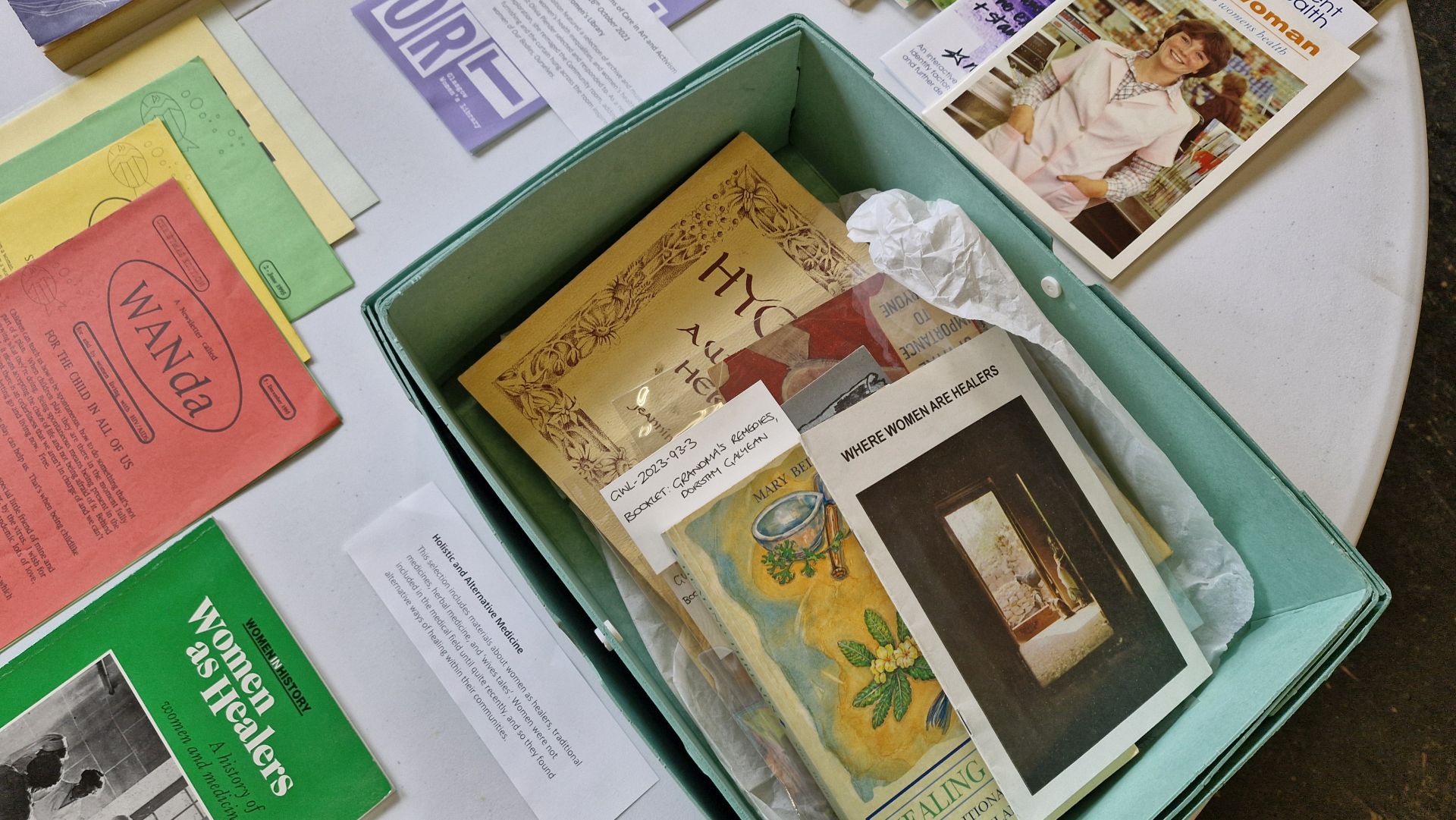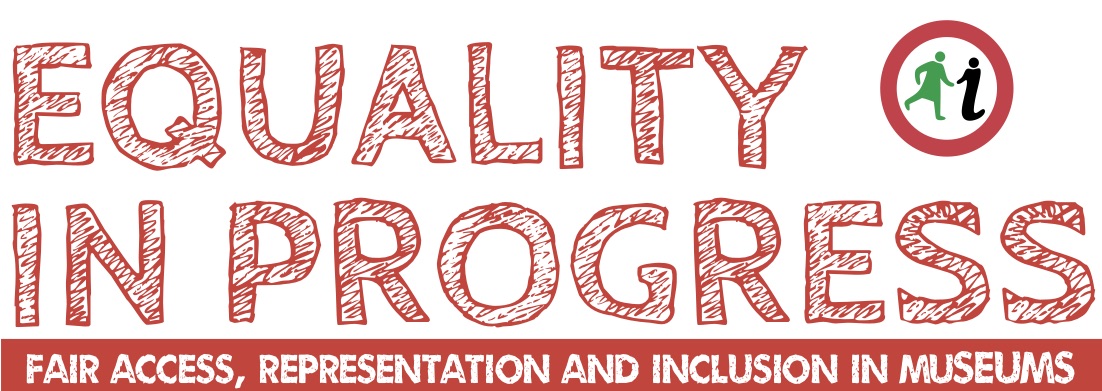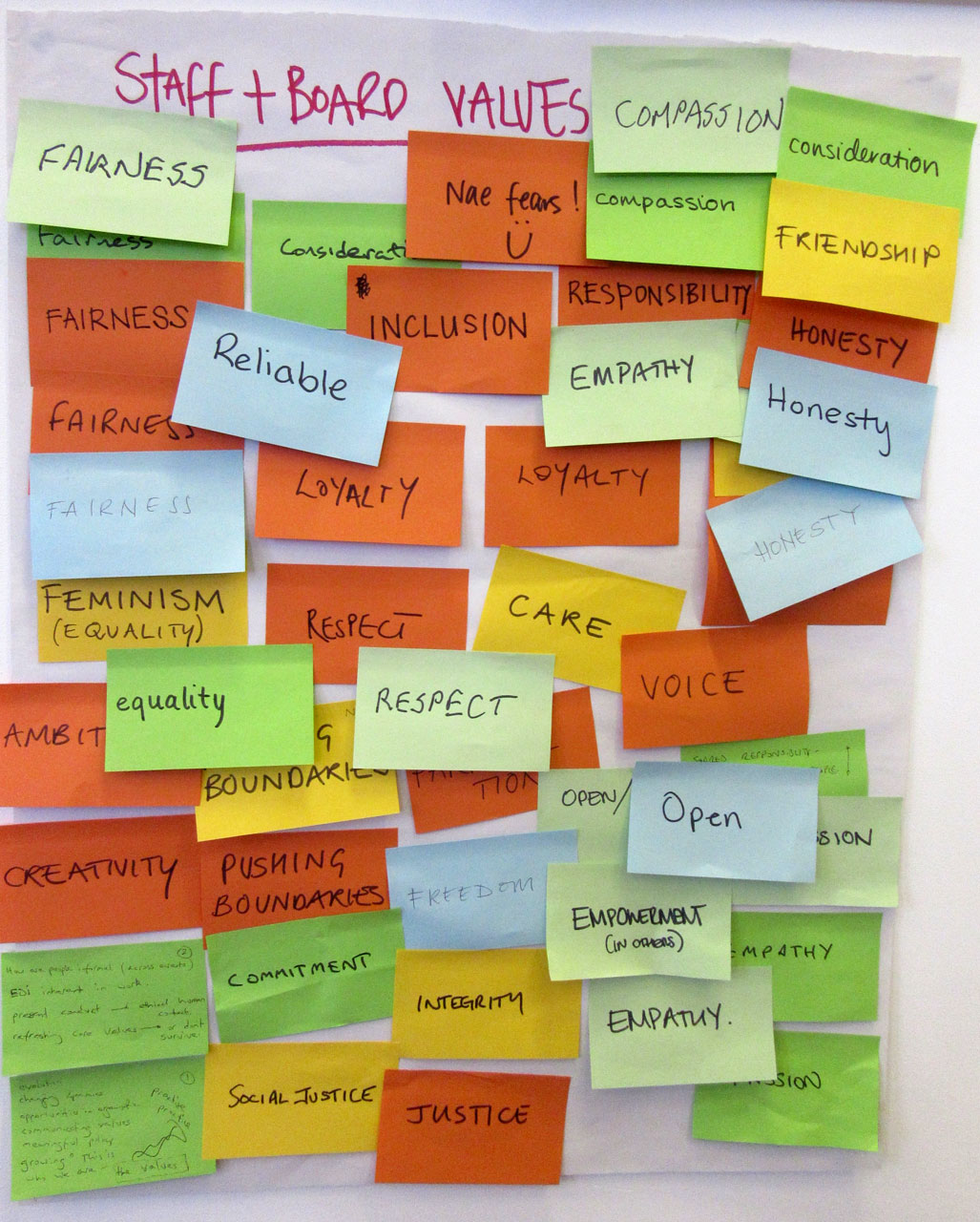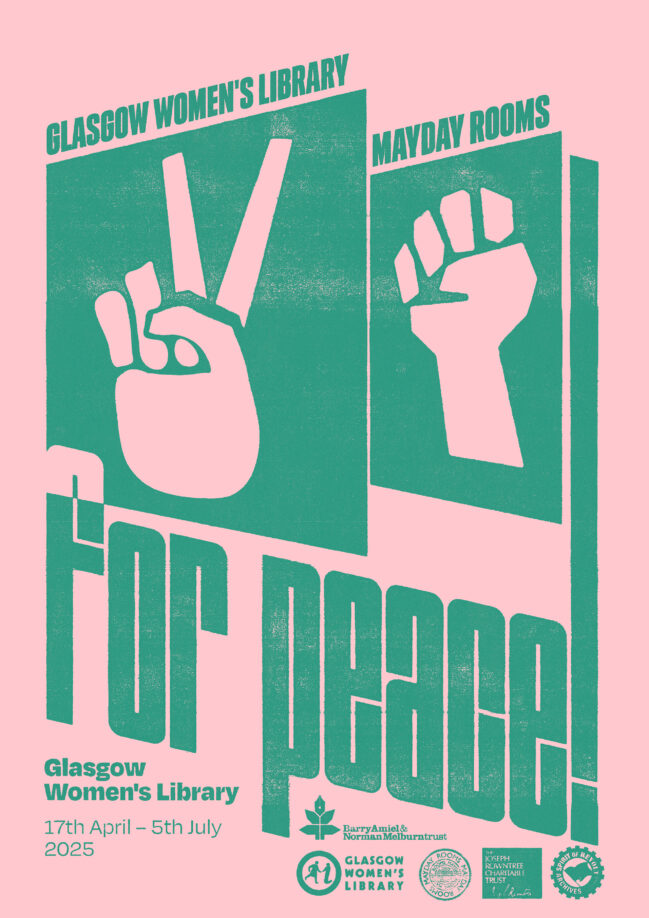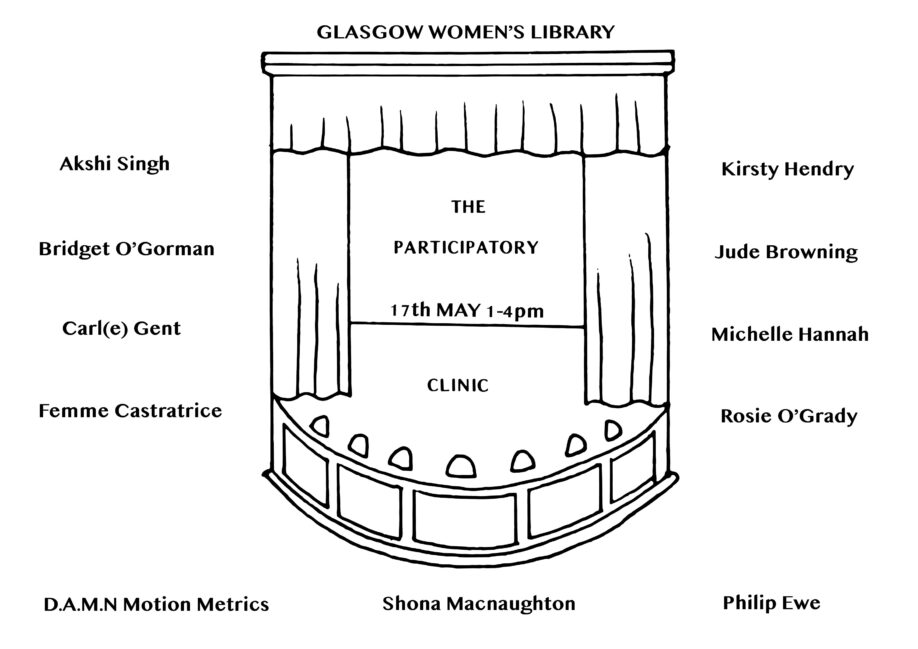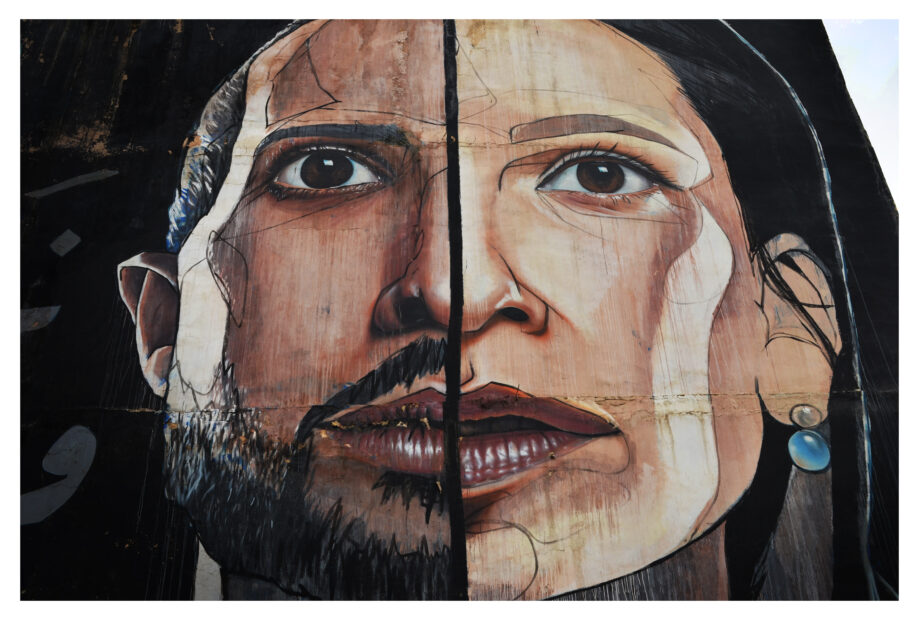The archive and museum collection at Glasgow Women’s Library is open to everyone. We operate a free public space where our collections can be consulted and no membership is required.
You are welcome to pop by the library to browse our books during opening hours, and there are spaces to sit, including tables, throughout the building. Our research mezzanine is also open to the public, where, on a quiet day, you’ll be welcome to browse handling collections and our themed display cases. This is subject to availability, as the space is small and we are often fully booked with researchers.
Our archive and museum collections are open to researchers on an appointment-only basis Tuesday-Friday 10am to 4.30pm. We ask people to arrange an appointment in advance if they wish to access material in the archive and museum collections not currently on display.
Exploring our Catalogues
Before you book your research appointment, make sure that you explore the collections via our online catalogues and then send us information about your research topic, the purpose of your research, and the collections/files that you’d like to see.
While not everything in our collections is catalogued, the online material provides a good overview of the scope of our holdings and can help you develop and refine your research.
Research Enquiries
Our website search and blog are a fantastic place to start if you’re looking for contextual information surrounding collections, sometimes leading you to stories behind the objects and material we have here. It’s really helpful for us to know clear dates and more specific focuses within your research. The more information you can give us the better we can help you.
If you would like to know more about our collections or cannot find what you’re looking for, please contact us. Cataloguing of the collection is an ongoing process, so not all records may yet be online. We aim to answer research enquiries within 15 working days. For enquiries that require more than 30 minutes we will recommend that you ask us about our research service.
Booking an Appointment
Please contact us to arrange an appointment to access the collections, giving at least 3 weeks notice where possible. We are a small team, receiving a high volume of research requests and our capacity for researchers is limited, though we’ll do our best to accommodate everyone.
Please note that the archive and museum collections will be closed to researchers in January and July each year to allow us to carry out essential work. We apologise for any inconvenience this may cause.
Archive and museum collection opening hours
Tuesday to Friday, 10am to 4.30pm
Please note that collections opening times differ from our regular opening hours.
Your Visit
Getting to Us
We would like your time spent with us in the archive to be as comfortable as possible. Please browse the where to find us and accessibility pages if you’d like a step by step introduction and guide of how to access the building.
When you enter the library, head to the front desk, let them know your name and that you’re here for a visit to the archive and museum collections.
To the left of the front desk you can access the research mezzanine, by lift or stairs. Usually you will either be welcomed by collections staff or somebody from the front desk will accompany you up to the research mezzanine.
Activity in the Space
The Research Mezzanine is in the Event Space. The Event Space is a large room with high ceilings. It includes a kitchen and is often host to meetings, Adult Literacy and Numeracy tutorials, tea breaks and events. The Research Mezzanine is a working space often filled with archive boxes and museum items. Staff, volunteers, members of the public and other researchers work with collections, often sharing tables. It can sometimes be quiet and other times very busy, depending on the time of week and month.
Noise
This space can often be noisy, particularly if there is an event going on. Noise cancelling headphones are available for researchers.
Temperature
Because of the unpredictable weather, the large space and the old stone building, the temperature on the research mezzanine can be chilly, particularly in the winter mornings. We provide blankets and cushions for comfort but recommend that you bring layers.
Breaks
We have a kitchen in the event space which you are welcome to use. Help yourself to hot drinks and use our fridge to store your food (cupboards are labelled to help you find things). We currently do not have a designated quiet space but our Gallery Space is often less populated if you need some peace.
We currently have a beautiful garden space across the road from our building – please feel free to eat your lunch here or have a peaceful moment. Weather dependent.
Staff and volunteers will be on hand to give you directions around the building.
Handling Materials
Our collections are precious, and because of this we ask that:
- No food or drink is allowed when consulting archival material
- Please make sure that your hands are clean, i.e. no hand cream!
- Only pencils should be used for taking notes – no pens, tippex, rubbers or highlighters
- Please do not lean on or trace the material
- No flash photography
Using Collections Materials
The library has a service for scans and reproductions from our archive and museum collections, some of which we charge for. We calculate fees in relation to our direct and indirect costs. This includes staff time and overheads such as building and management costs. Because we are a small team with limited capacity all services are subject to refusal.
GWL Archival Image Use, Reproduction and Research Services
Copying Items from our Collections
We do not hold the copyright for much of the material held in the archive and museum collections, so often will not be able to give you permission to reproduce images. You can find out more about exemptions to copyright, due diligence and how to gain permission to use images on the GOV.UK website.
We can let you use images of much of our collections for research purposes only. You will be asked to fill in a permissions form outlining the copyright rules and agreeing to these conditions.
Image Use
We charge fees for the reuse of certain material that is intended for a commercial purpose. If you are using material that is protected by third-party copyright, any fees that you have to pay the copyright holder are separate and will be in addition to our fee.
Commercial use means that it is intended or directed towards commercial or financial advantage or money compensation. For example:
- Use in journals, books, websites, apps, magazines, e-publications and any publication that is charged for or supported by advertising
- Use in exhibition, shows and events that are charged for or supported by advertising
- Use in television shows
- Use in media or news reporting
1 image £75; each additional image £25
Non-commercial use means that it is not intended or directed towards commercial or financial advantage or that it is small or limited. For example:
- Educational use including projects and theses; classroom material; courses; virtual learning environments
- Books, journals, magazine and other publications with a total print run of 500 or less
Photocopying
Making photocopies for research purposes on a limited basis. Please see below for the following charges.
| Cost per sheet | |
| B&W A4 | 20p |
| B&W A3 | 40p |
| Colour A4 | 40p |
| Colour A3 | 80p |
Personal Camera
Use of a personal camera in the research space is free. Please do not use a flash.
Digitisation/Scanning Service
- £20 per 30 minutes of scanning
- Scans will be emailed using WeTransfer
- Size up to A3
- Format JPEG, PDF or TIF depending on the item or your planned use
Not all of our collections are suitable for copying and/or scanning due to condition and we reserve the right to refuse to copy items.
Research Services
For research enquiries that require more than 30 minutes, there is an hourly fee of £40. We may not always have the staff capacity to provide this service. If this is the case we may be able to recommend external researchers.
If you have any questions about accessing or using our collections and related services, including arranging an appointment, please contact us.
